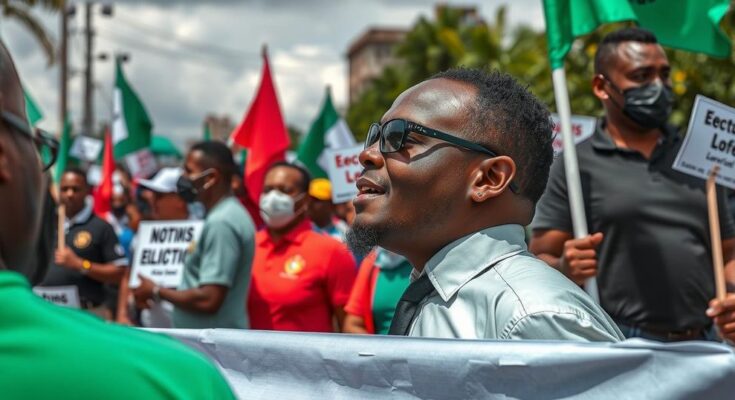The opposition in Comoros has rejected the results of the recent legislative elections, claiming electoral fraud and lack of transparency. Despite significant opposition boycott, the ruling party emerged victorious. Allegations of misconduct within the electoral process have led to ongoing political tensions in the country.
In the Indian Ocean nation of Comoros, opposition leader Daoud Abdallah Mohamed, representing the United Opposition coalition, has publicly contested the results of the recent legislative elections. According to Mohamed, which were largely boycotted due to concerns regarding transparency, the elections were tainted by “gross fraud, ballot box stuffing, and discrepancies in voter counts.” The independent electoral commission declared that candidates from the ruling Convention for the Renewal of the Comoros (CRC) party won 12 seats, with voter turnout reported at 70 percent despite accusations of irregularities.
The political landscape in Comoros has been fraught with tension, particularly regarding election processes and the credibility of outcomes. The recent legislative elections have drawn scrutiny, especially with significant portions of the opposition opting not to participate due to perceived corruption and lack of transparency in the electoral process. The ruling party has maintained its dominance since President Azali Assoumani took power in 2016, leading to ongoing disputes about the integrity of elections within the archipelago.
In conclusion, the recent legislative elections in Comoros have sparked significant controversy, highlighted by the outright dismissal of the results by the opposition. Allegations of electoral misconduct, such as ballot box stuffing and exaggerated voter statistics, have compounded concerns over the democratic process in the nation. With a second round of voting approaching, the United Opposition has indicated they will not participate, further isolating the political environment in Comoros.
Original Source: www.barrons.com




